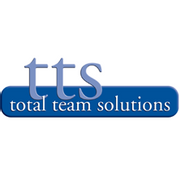
HEALTHCARE TRENDS – SPRING 2017
With increasing uncertainty in today’s healthcare market with the potential repeal and replacement of the Affordable Care Act, there are some trends in employer healthcare plans worth noting. With the overall goal of containing costs, employers are taking multiple steps with the goal to modify participants’ behaviors in a manner that will reduce employee benefits claims. The three main areas of emphasis are:
- Modifying prescription drug plans to encourage appropriate utilization of generic and formulary drugs.
- Modifying vendor strategies, including the expansion of wellness programs to encourage healthier lifestyles.
- Increasing employee point of care costs by adjusting deductibles, out-of-network coinsurance and out-of-pocket maximums.
One area in particular that has been a focus of employers has been the implementation of high deductible Health Savings Account (HSA) healthcare plans. Enrollment in HSA plans doubled over the past five years and now comprise almost 25% of all employer sponsored plans. HSA plans have a high deductible that requires the employee to pay all medical expenses incurred until the deductible is met. The intention of these types of plans is to make participants more cost conscious consumers of their healthcare in seeking lower cost treatments and drugs and avoiding unnecessary ones. To assist in paying the high deductible, employees may make pre-tax payroll deferrals into a special bank account that may be used to pay their medical expenses when incurred. Some employers also make contributions into these accounts for their employees to motivate them to enroll in the plans. Annual contribution limits into HSA’s in 2017 are $3,400 for individuals and $6,750 for family and dependent coverage.
The special bank accounts are appropriately called Health Savings Accounts. Funds go in tax free, interest earned on them is tax free and then withdrawals are tax free as long as they are for qualified expenses under IRS rules. As claims are incurred, these funds may be used to pay the medical bills, but if the employee is healthy and has few or no claims, the balance can grow over time and can eventually become an additional retirement account.
If you continue to experience high annual increases for your healthcare plans and want help to control these costs, contact John Morlock of Total Team Solutions for more information at 800-836-9678 or jmorlock@ttspro.com.
ABOUT TOTAL TEAM SOLUTIONS: Total Team Solutions is a full service Human Resources Outsourcing company serving small businesses in Connecticut, New York and Massachusetts. We provide payroll administration, employee benefits solutions and a broad array of human resources support services to help our clients spend less time and money on human resources and focus instead on growing and running their businesses.
About the Business
Have a question? Ask the experts!
Send your question

